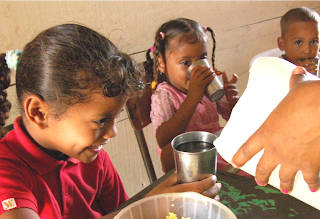Here's another excerpt from a great sermon written by Eugenia Gamble. The text is Luke 9:18-27, which begins, "Once when
Jesus was praying in private and his disciples were with him, he asked them, 'Who do the crowds say I am?'”
A
number of years ago I took my study leave for a month alone to write on a tiny
island off of Nova Scotia ... When I was in Nova Scotia I thought a
lot about that question. I was serving a congregation that was growing and
growing more diverse in a city that seemed more and more unconcerned about the gospel. So whenever I had a natural opportunity, I asked the question of people
that I met what they had to say about Jesus.
.... I met a couple from Ontario who lived on their sailboat and went all over the
world. We chatted while our clothes washed and somehow, probably after they
asked what I did for a living, I asked them.
The man said, “He was a wonderful man
who founded a horrible religion. No,” he went on, “It’s not a bad religion. It
is just practiced by horrible people, hypocrites. I’d like to be a Christian if
it wasn’t for the hypocrites.”
The young girl who rented me a movie at
the general store nearly every evening said in answer, “He was part of God
wasn’t he, a long time ago?”
The defrocked Roman Catholic priest who
was the owner of one of the little restaurants in town said, “He was my way to
God before the church blocked my path.”
And, my personal favorite, the young
man at the pizza parlor said, “Jesus, I don’t know the dude. Does he live around here?”
In each of those conversations, I could
hear Jesus’ pensive question to his friends, “Who do the crowds say that I am?”
That is a huge question for us today,
sisters and brothers. Who do the crowds say that he is? Is he a political code
word for a particular ideology? Has he become a justification for our points of
view—right, left, right, wrong? Is he just the name of an ancient man with long
blond hair who was fond of holding lambs and lifting gentle hands to gentle
children?
Who do the people in your company say
Jesus is? In your school? In your family? In your neighborhood?

